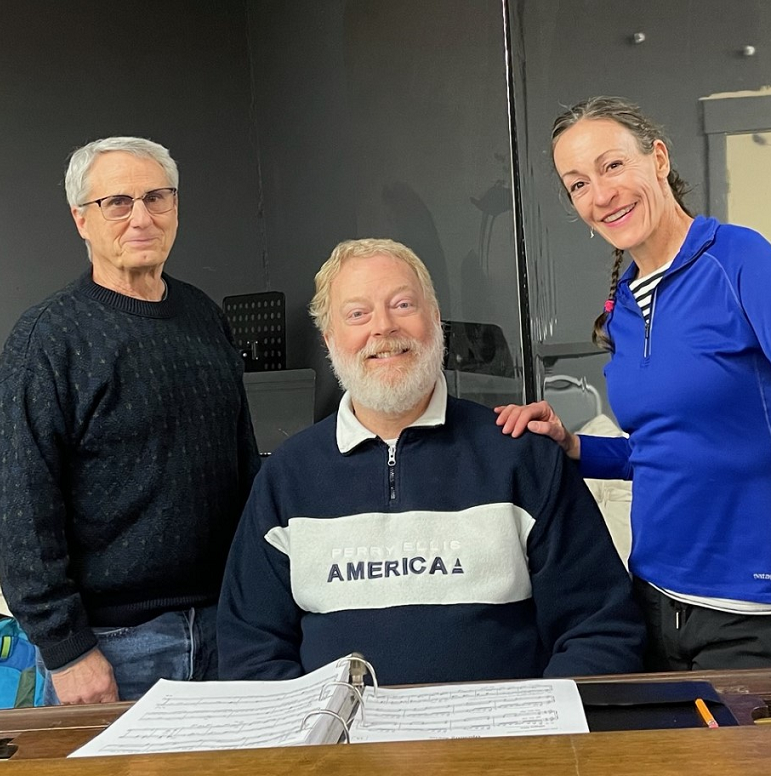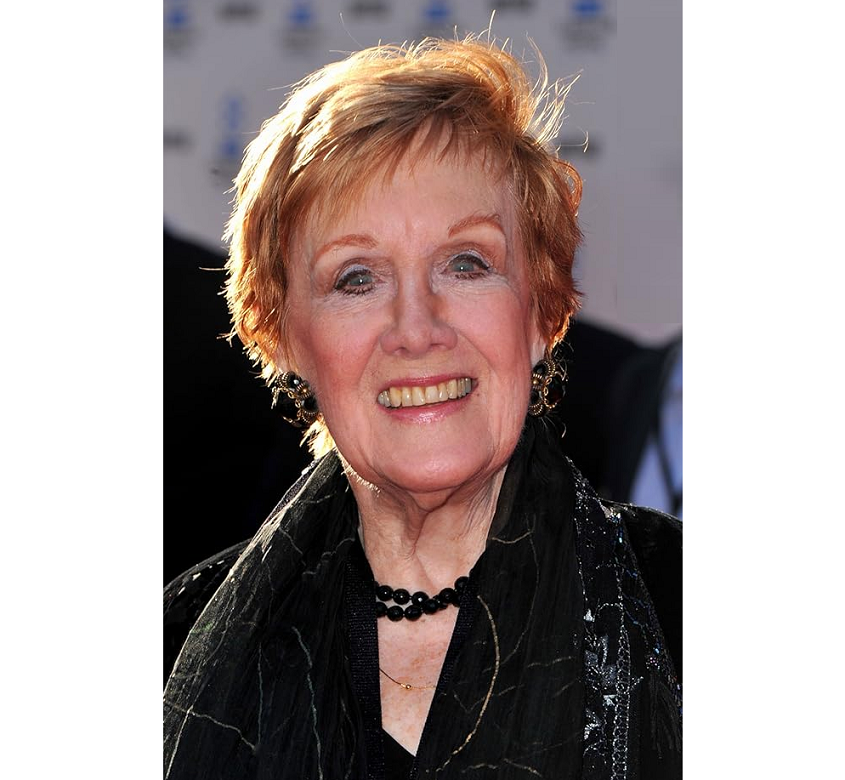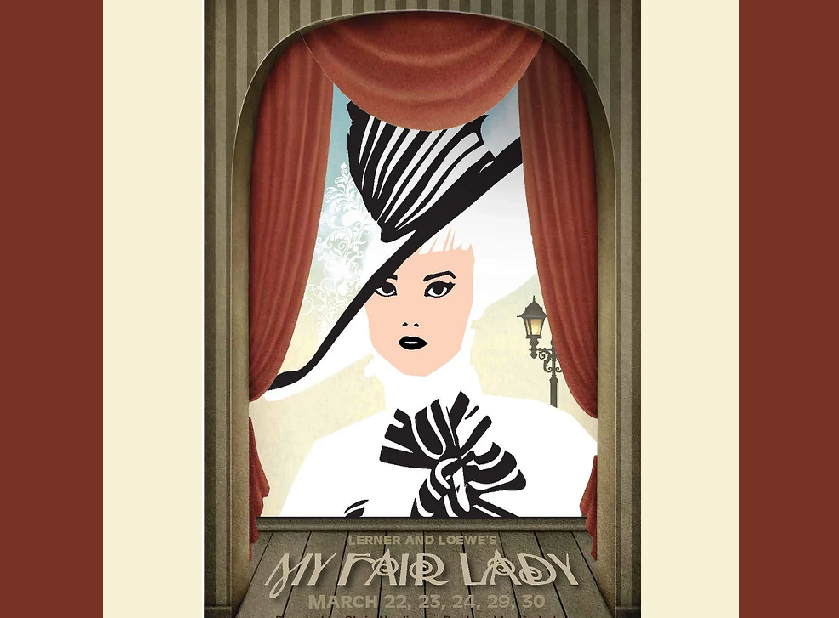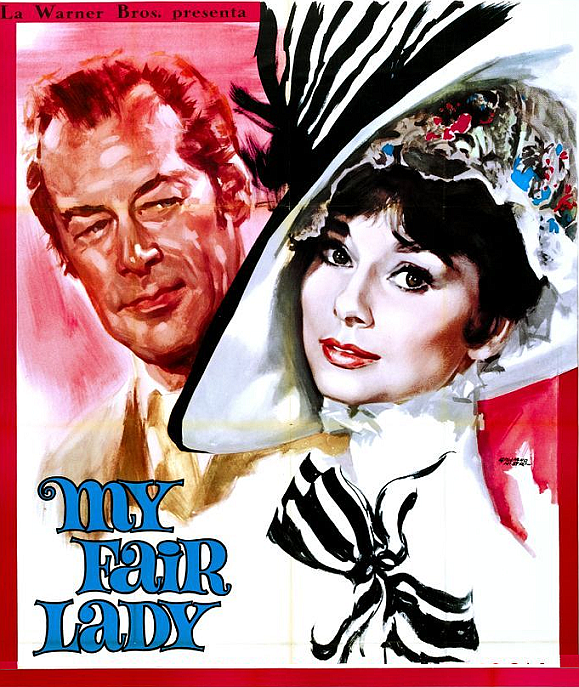I've Grown Accustomed to Her Face
My Fair Lady, a new take on Professor Henry Higgins, and a nod to Seattle's own Marni Nixon
March 3, 2024 at 7:18 p.m.
...by JOHN SCHIESZER
 (left-right) Chris Nardine - director; Paul Linnes - music director; Kate Kingery - choreographer
(left-right) Chris Nardine - director; Paul Linnes - music director; Kate Kingery - choreographer
“It's a strong and deep story, and the musical provides wonderful songs and dances with both comic and serious moments,” said Chris Nardine, who is directing the show at Shoreline Community College Theater. My Fair Lady was written by Lerner and Loewe and in 1957 it won a Tony for Best Musical. It is based on George Bernard Shaw’s 1913 play Pygmalion. However, it is most known for the 1964 Academy Award-winning film starring Audrey Hepburn and Rex Harrison.
The film features the singing voice of Seattle’s Margaret Nixon McEathron (February 22, 1930–July 24, 2016), known professionally as Marni Nixon. She is one of the greatest musical voices of Seattle, and was a ghost singer for Deborah Kerr in The King and I, Natalie Wood in West Side Story, and Audrey Hepburn in My Fair Lady. Her roles were concealed from audiences when the films were released.
 Seattle's Marni Nixon was the "ghost singer" in many movies, including for Audrey Hepburn in "My Fair Lady." She was also a mentor to Paul Linnes, director of the new production of "My Fair Lady."
Seattle's Marni Nixon was the "ghost singer" in many movies, including for Audrey Hepburn in "My Fair Lady." She was also a mentor to Paul Linnes, director of the new production of "My Fair Lady."
Paul Linnes, the music director of the new production by Woodland Park Players, met Nixon when he was singing in the Pacific Region Finals of the Metropolitan Opera National auditions and Nixon was one of three judges. “We were given an opportunity to talk to each of the judges privately for about half an hour to discuss what they heard and saw in our performance, tips to get better, etc. I remember our conversation as being warm and positive. She was a lovely lady and very kind,” said Linnes.
The show is fascinating for many reasons. It opens with a Cockney girl named Eliza Doolittle meeting Colonel Pickering and Professor Henry Higgins in Covent Garden, where she is selling flowers. The two men remark that they could raise her status in society if she could speak properly. Pickering challenges Higgins to do that very thing. It proves to be difficult for Eliza and Higgins.
Is Professor Higgins on the Autism Spectrum?
Nardine said while preparing to direct this production of My Fair Lady, he was reading a book by Seattle clinical psychologist Dana Waters and her discussion of masking autism. Waters discusses a variety of social traits and personality traits and how they are masked. “It was enlightening. I came to the personal conclusion that Professor Higgins might well be on the autistic spectrum. With the information available to us today, we might better understand different personalities, actions, ways of learning and necessary ways of dealing with social situations and other people. We can possibly apply this information to better understand someone like Higgins,” said Nardine.
The traditional ending of this show can be troublesome. It can come across as very patriarchal. However, this new production is updated for the Seattle audience, which tends to be mostly older adults. Nardine said the ending is purposely left ambiguous. The audience is left to wonder what happens to Higgins, Eliza, and other characters in the story. In Pygmalion, Shaw did not intend any sort of romantic story. “The two major characters are much too different in character to ever be more than respectful acquaintances. In creating the musical, My Fair Lady, Lerner and Lowe felt that their audiences yearned for a romantic ending, but it is difficult to see that they provided well for one. Audiences today might divine a much different conclusion than when this musical was first produced in 1964,” said Nardine.
For many individuals who saw this movie or play in their teens, they may see it much differently now. Nardine said there's a lot of romance in our teens. At that age, many individuals are filled with optimism, hope, and a simpler way of looking at the world. “Our answers might be more of a black and white nature. With age, we see the complexities of life. We see the differences. We hopefully grow to understand the world better. The world, characters and relationships in My Fair Lady are complex, and need to be sorted out by pondering, reflecting, and coming to conclusions by each of us,” said Nardine, who has directed and choreographed My Fair Lady more than once.
The first time he choreographed My Fair Lady was in 1980 for Musicomedy Northwest, which performed at Second Stage downtown Seattle where the Convention Center is now. Marni Nixon was on the board of that group for a while. “I learned a lot there between 1978 and 1983,” said Nardine.
Why Can’t a Woman be More Like a Man?
In today’s world, the gay subcontext in My Fair Lady is unavoidable. Professor Higgins fits a certain gay stereotype. He is a lifelong bachelor and lives with another man. He is cultured and worldly and one of his biggest singing numbers in the second half of the show is “Why can’t a woman be more like a man?”
Linda Joss is the leader of Woodland Park Players, a neighborhood theatre group, and she said this production will appeal to all individuals. “Making art is good for our hearts,” said Joss. As such, the ensemble also goes out into the community. “On Saturday, March 9, at 7:00 pm, our group is doing a performance for the residents at Ida Culver House (a senior living community). Our Music Director, Paul Linnes, will play and we will sing around their grand piano,” said Joss.
Eliza Doolittle is played by Amanda Cirie, Professor Higgins is played by Mike Boyle, Alfred Doolittle is played by Cameron Keyes, Colonel Pickering is played by Peter Heinrich, and Freddy Eysnford-Hill is played by Michael Sterling.
The proceeds from this production of My Fair Lady will go toward the Ed Harowicz Arts and Education grant. “Since our inception in 2016, we have granted over $40,000 back to Seattle art student's programs. These groups have done many things with their grants. Some examples have been purchasing much needed instruments and arts supplies, bringing artists in residences to schools, and paying for art teachers,” said Joss.

My Fair Lady by the Woodland Park Players runs March 22-30, 2024 Live captioning will be available for two showings of My Fair Lady, March 23 at 7:30pm and March 24 at 2pm. March 24 is Seniors' Day! Top Pot donuts will give away free donuts and coffee to all seniors age 65+ ! Shoreline Community College Theater is located at 16101 Greenwood Avenue North Tickets are available through Brownpaper Tickets at https://www.brownpapertickets.com/event/6235469 or at www.woodlandparkplayers.org





